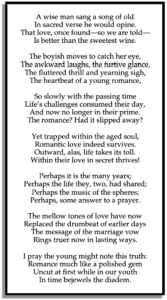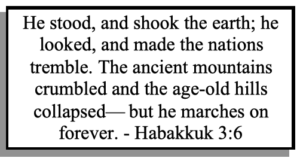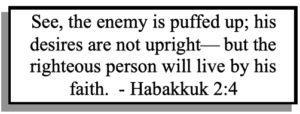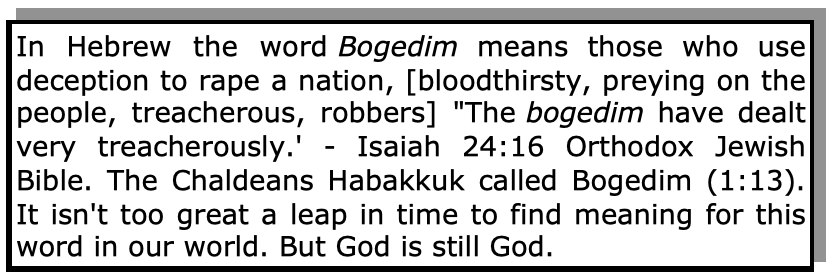25 .. husbands, … love your wives, just as Christ loved the church. He gave up his life for her.… 31 As the Scriptures say, “A man leaves his father and mother and is joined to his wife, and the two are united into one.” 32 This is a great mystery, but it is an illustration of the way Christ and the church are one… Ephesians 5:25, 31-32

Parables and other forms of the metaphor are very much a part of our cultural imagination. One analogy often overlooked is why God chose to create the marriage bond monogamous between one man and one woman. God would create for Adam only Eve to form a “oneness” that culturally has been all but lost since their quest to discover what “evil” was all about. Jesus regretfully lamented on divorce, “because of the hardness of men’s hearts” [Mark 10:5].
Divorce along with same-sex unions, and polygamy were not God’s design because God intended the marriage union as a metaphor representing “Christ and the Church” [Ephesians 5:32]. The mystery of marriage “oneness” is a spiritual bond. Perhaps this bond is only recognizable after decades of working through confrontations, arguments, and misunderstandings. Perhaps, a couple only after many years begins to recognize their love has climbed somehow to a higher level unseen in all the busyness of life. Nonetheless, in later years, to their utter surprise, even without the flowers and weekly dinner dates, something has happened to “cement” [the Bible word ‘cleave’] them together.
 Husbands are enjoined to love their wives “just as Christ also loved the church and gave Himself for her” [Ephesians 5:25]. Somewhere alone in the memory of our first parents, we can assume, is a moment when such a love as this made sense to them. But a spiritual depravity would rob us of the insight to see that this “oneness” in marriage is worth pursuing.
Husbands are enjoined to love their wives “just as Christ also loved the church and gave Himself for her” [Ephesians 5:25]. Somewhere alone in the memory of our first parents, we can assume, is a moment when such a love as this made sense to them. But a spiritual depravity would rob us of the insight to see that this “oneness” in marriage is worth pursuing.
Most husbands since “the Fall” might only complain about the lack of submission and respect wives show—missing Paul’s point entirely. Nonetheless, this metaphor serves to highlight the mystery which only begins to reveal its secrets to those few couples whose love has endurance and longevity.
Some husbands enjoy the leadership role when society is passing out accolades but they cringe away and hide in the shadows when the task requires sacrifice. Yet, Christ’s love for His Church put Him in the fore when evil needed to be defeated which, as we know, led to His crucifixion.
There is, or should be, a consciousness that almost instinctively moves a man to risk all for family. Little boys dream of such adventures with punches thrown in defending fair maiden. But this seed of manliness must be culturally watered to germinate and the gardener is another man, a “father.” A true lover, a man who knows the secret of an enduring romance, is the only one who can cultivate in a boy both the desire to defend love and the tenderness to recognize that love when the time comes.
In the same way, husbands ought to love their wives as they love their own bodies. For a man who loves his wife actually shows love for himself – Ephesians 5:28
This verse interpreted: If a married man cares about his own happiness, he will focus on hers. Happy Valentines Day!

 valid, absolutely true, and unassailably correct. Interpreting scripture is known as the study of hermeneutics but scholars maintain three principles which are, themselves, presumed reasonable paving the way to a true understanding of scripture:
valid, absolutely true, and unassailably correct. Interpreting scripture is known as the study of hermeneutics but scholars maintain three principles which are, themselves, presumed reasonable paving the way to a true understanding of scripture: All interpretations of scripture are biased. We filter our understanding of the message of scripture through our understanding of life, of culture, of personal experience, and of education.
All interpretations of scripture are biased. We filter our understanding of the message of scripture through our understanding of life, of culture, of personal experience, and of education. But, and this is important to note, bias is changeable by a continued study of the Biblical text. Through continuous contact with God’s Word either through devotional reading or personal study true believers (and not just church attenders) develop a life changing affection for the Word. They experience what they are studying because it is the responsibility of the Spirit to guide believers [John 16:13] into all objective truth, truth that is “universally valid, absolutely true, and unassailably correct.”
But, and this is important to note, bias is changeable by a continued study of the Biblical text. Through continuous contact with God’s Word either through devotional reading or personal study true believers (and not just church attenders) develop a life changing affection for the Word. They experience what they are studying because it is the responsibility of the Spirit to guide believers [John 16:13] into all objective truth, truth that is “universally valid, absolutely true, and unassailably correct.” It is this third point that supports my contention that there is an objective truth to learn which God is sharing through the Spirit’s ministry with all His church, every believer, who prayerfully and studiously pursues it [Jeremiah 3:15; Luke 1:77; John 16:8-15]. But this is a process since the Word of God frequently confronts personal bias which through humility can be challenged and overcome [John 8:32].
It is this third point that supports my contention that there is an objective truth to learn which God is sharing through the Spirit’s ministry with all His church, every believer, who prayerfully and studiously pursues it [Jeremiah 3:15; Luke 1:77; John 16:8-15]. But this is a process since the Word of God frequently confronts personal bias which through humility can be challenged and overcome [John 8:32].
 The Spirit is teaching His church and using each to minister this truth to the others, but it requires a dedicated commitment and hunger to know God, accompanied by a lifestyle of prayer. When we come together this way opening the scriptures is an adventure into a more objective revelation of God’s Word because it not only makes “head” sense but “heart” sense, as well.
The Spirit is teaching His church and using each to minister this truth to the others, but it requires a dedicated commitment and hunger to know God, accompanied by a lifestyle of prayer. When we come together this way opening the scriptures is an adventure into a more objective revelation of God’s Word because it not only makes “head” sense but “heart” sense, as well. Look into Genesis 1:1 the first four words in English, “In the Beginning, God….” Have we graduated in our understanding beyond these four words? I haven’t! This is a fundamental statement putting into words a fundamental truth about God that He is eternal because when everything else began, He was already here! And upon this revelation we build all our beliefs and hopes.
Look into Genesis 1:1 the first four words in English, “In the Beginning, God….” Have we graduated in our understanding beyond these four words? I haven’t! This is a fundamental statement putting into words a fundamental truth about God that He is eternal because when everything else began, He was already here! And upon this revelation we build all our beliefs and hopes. What matters is that we are now “in time” and our eternal God put us here for a season, which is obvious, since if our presence in this life were permanent, it wouldn’t be “in time.” Now, why would an “eternal” God do something like that!? Would you build a world—all that exhausting work and passion [on the 7th day He “rested”]—knowing it would all perish just after you built it? [No matter how many billion of years you think this globe has sustained the assault of meteors and all, compared to eternity, we are talking minutes of time.] Now, why would God do that?
What matters is that we are now “in time” and our eternal God put us here for a season, which is obvious, since if our presence in this life were permanent, it wouldn’t be “in time.” Now, why would an “eternal” God do something like that!? Would you build a world—all that exhausting work and passion [on the 7th day He “rested”]—knowing it would all perish just after you built it? [No matter how many billion of years you think this globe has sustained the assault of meteors and all, compared to eternity, we are talking minutes of time.] Now, why would God do that? Take a closer look at the parentheses that embrace this existence: in Genesis 1:16 He made the sun and in Revelation 22:5 He gets rid of it because He has made something called in the Greek text of Matthew 19:28 a paliggenesis [Titus 3:5], a new Genesis! the NIV interprets this, “the renewal of all things.” Revelation 21 speaks of a new heaven and a new earth. I am beginning to see it!
Take a closer look at the parentheses that embrace this existence: in Genesis 1:16 He made the sun and in Revelation 22:5 He gets rid of it because He has made something called in the Greek text of Matthew 19:28 a paliggenesis [Titus 3:5], a new Genesis! the NIV interprets this, “the renewal of all things.” Revelation 21 speaks of a new heaven and a new earth. I am beginning to see it! “He now goes along as He went along in the olden times.”1 Habakkuk learned.
“He now goes along as He went along in the olden times.”1 Habakkuk learned. It is a shame that life gets so complicated if we attempt at explanations or if we wish to make the right choices on our own.
It is a shame that life gets so complicated if we attempt at explanations or if we wish to make the right choices on our own. attribute their military successes to their own strength as their god. Habakkuk, notwithstanding, is confident and hopeful that God will not permit His people to perish at their hands. The prophet’s argument is that a Babylonian exile is an instrument of God’s judgment and it is not Babylon’s strength that brings victory.
attribute their military successes to their own strength as their god. Habakkuk, notwithstanding, is confident and hopeful that God will not permit His people to perish at their hands. The prophet’s argument is that a Babylonian exile is an instrument of God’s judgment and it is not Babylon’s strength that brings victory.
